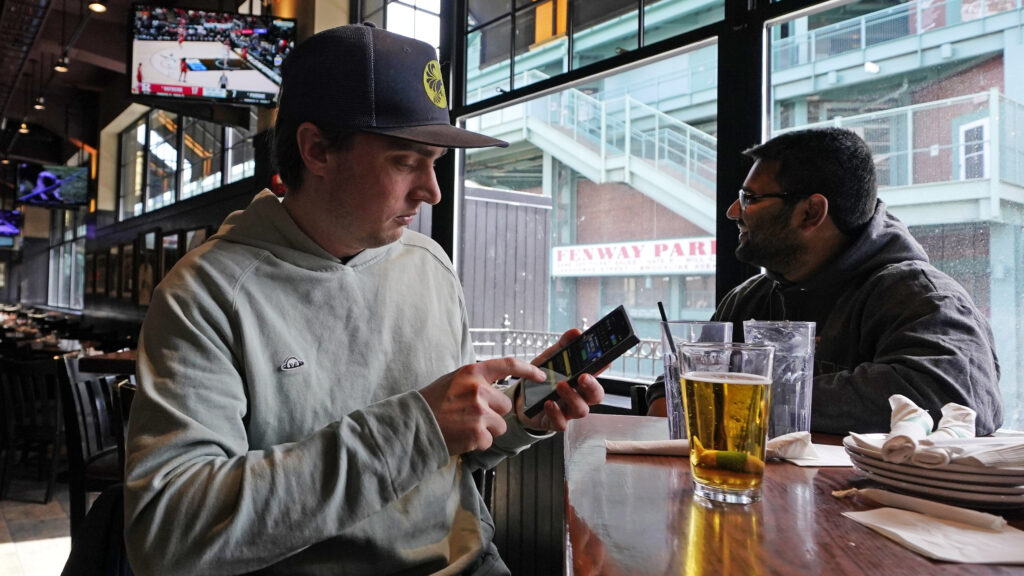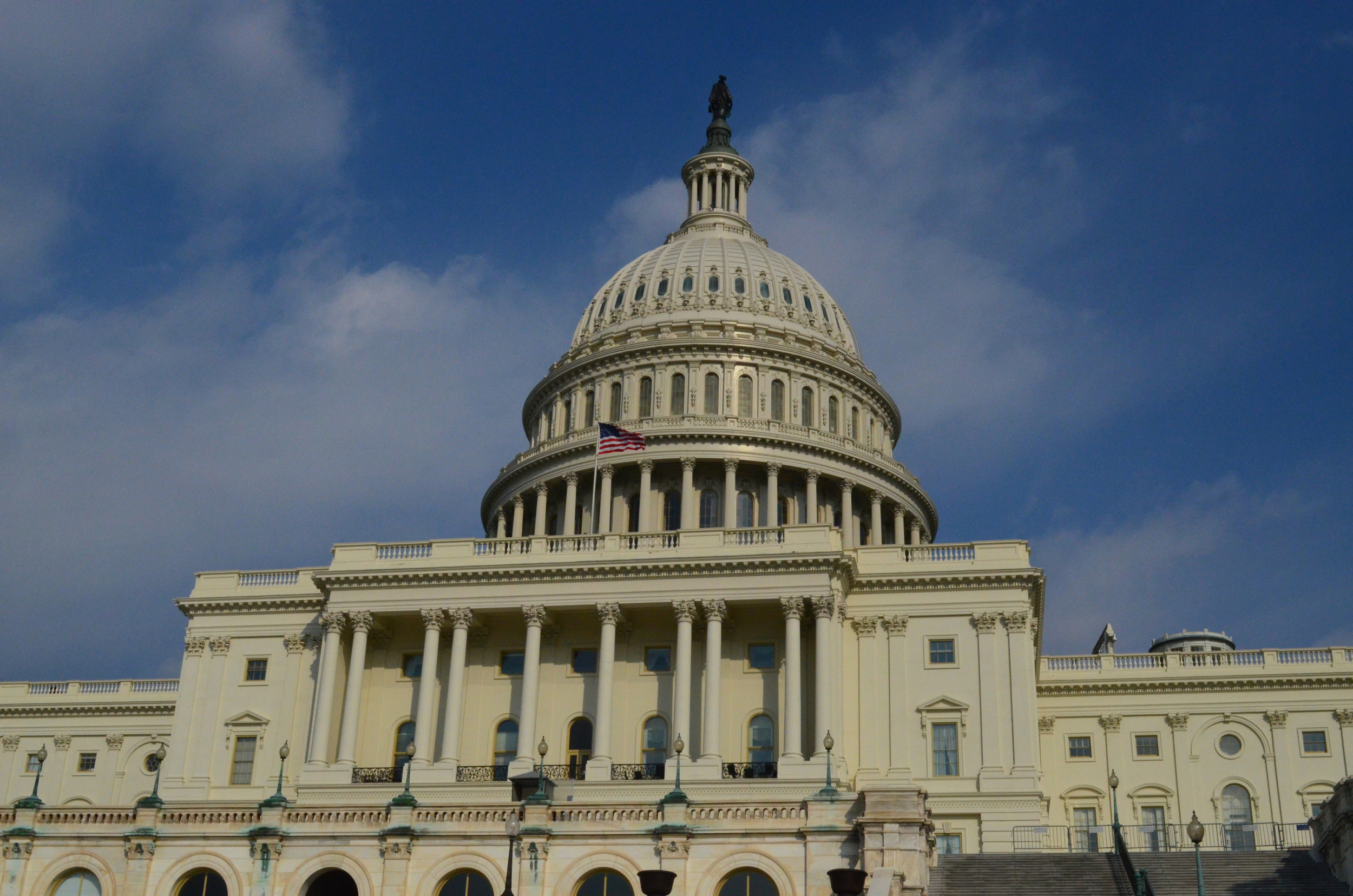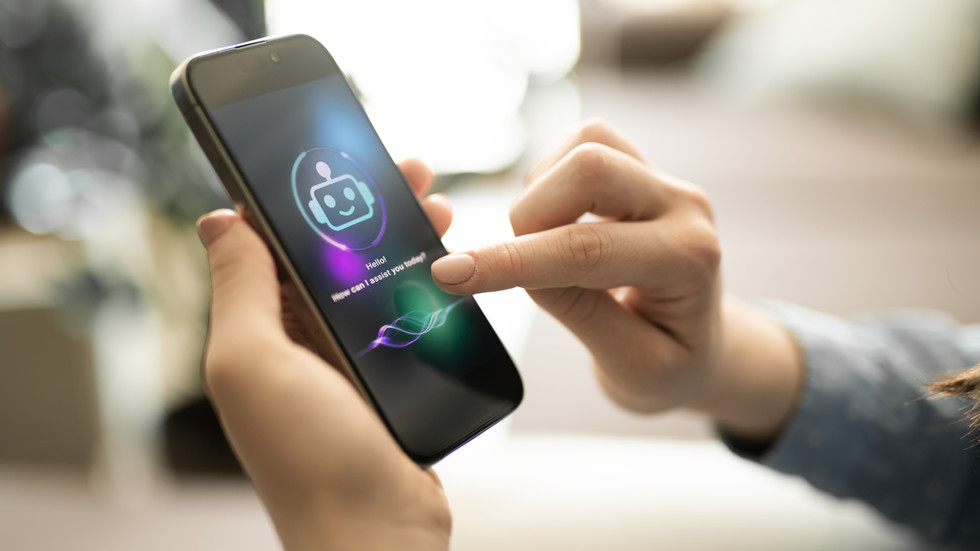Copyright STAT

When the Supreme Court struck down the federal ban on sports betting in 2018, Americans legally wagered less than $5 billion on sports annually. Last year, they bet $150 billion. What’s emerged isn’t just a bigger gambling market but a public health crisis in the making, with young men as its primary casualties. Advertisement Today 90% of bets are placed on phones, not at casinos or racetracks. More than half are live bets, placed while games are in progress. Open any betting app and you’ll find hundreds of options per game: not just who wins but whether the next pitch will be a ball or a strike, whether Shohei Ohtani will get a home run and five strikeouts, whether LeBron James will score 30 points. You don’t need to drive anywhere, get cash from an ATM, or even get out of bed. It has never been easier to gamble. Most people who use these apps won’t develop a gambling addiction. Most won’t even lose much money; a study of 9 million gamblers from the 2023-2024 NFL season found that 60% of bettors accounted for just 1% of sportsbook revenue. Between casual betting and full addiction, however, lies a massive gray area where millions of Americans, particularly young men, now live. “I first realized I might have a problem when I started checking the odds first thing in the morning,” says Danny (not his real name), a 20-year-old college sophomore. “I’d wake up, grab my phone, and open PrizePicks before even looking at my texts. Sometimes I’d bet, sometimes I’d just check the lines. Then I’d look again between classes, and during meals. I wasn’t losing a ton or failing out, but it started affecting me a lot … when my bets hit I felt on top of the world, but when they lost I felt like an idiot, and couldn’t concentrate on school or even on hanging out with my friends.” Advertisement What Danny describes — obsession, mood swings, intrusive thoughts — represents what mental health professionals, educators, and increasingly young men themselves now recognize as a widespread problem. The International Classification of Diseases calls it “hazardous gambling:” patterns that “appreciably increase the risk of harmful physical or mental health consequences” without qualifying for a diagnosis of pathological gambling. These gamblers far outnumber those with full-blown addictions. As The Lancet noted in 2024 in a wide-ranging commission review, “a substantial proportion of harm is suffered by those individuals who fall below the threshold for gambling disorders.” The consequences extend beyond lost money. Hazardous gambling is correlated with increased rates of anxiety and depression, and young men who engage in it are more likely to slide into a full-blown gambling addiction. Boys who frequently gamble miss more classes, perform worse in school, drink more alcohol, and participate in other risky behaviors at higher rates, often to cope with gambling-related stress. These antisocial patterns compound, with gambling sucking up time and mental energy that might otherwise go toward relationships, hobbies, and personal growth. But instead of warnings about these risks, young men see something else entirely: ads and influencers celebrating them. Consider FanDuel’s recent campaign featuring the comedian Eric André, where he literally stalks a man throughout his day — while he’s watching sports, when he’s eating, even when he opens the freezer — relentlessly pushing him to “act on his hunch” and place a bet. Another FanDuel ad shows it straight: a man sitting in a pool, staring at his phone tracking bets while his family and friends socialize and enjoy life without him. The gambling industry has rebranded isolation and obsession as dedication. The tagline for the pool scene? “Cherish Every Moment.” Sports media personalities embody this normalization. Earlier this year Stephen A. Smith, who recently signed a $100 million contract with ESPN (which recently disbanded its own sportsbook), was caught playing solitaire on his phone while at the NBA finals. He leveraged that moment: recently, he announced a partnership with Papaya, a company offering a gamblified version of Solitaire where users compete to win money. In an artificial intelligence generated ad for the World Solitaire Championship, Smith is shown at NBA games, in bed, at yoga class, and even at his own wedding playing the game. “If you want to make it,” the television personality says, “quit distracting yourself, and keep your head in the only game that matters.” Advertisement It is now impossible to watch a broadcast without being pushed to bet. What Danny recognizes as a problem is exactly what the apps are designed to create: users glued to the screen, consumed by their bets above all else. Young men are the perfect targets, biologically programmed to embrace risk-taking. This generation has been groomed to gamble since childhood, with randomized reward systems in video games nudging them to spend real money for a chance at winning big. They’re economically anxious, facing a weakened job market with wages that haven’t kept pace with housing and education costs. They’re isolated, with fewer close friendships than any generation on record, and increasingly reliant on parasocial relationships with streamers and influencers — many of whom are paid to promote betting apps. They’ve been trained by digital life and social media to crave immediate rewards, making the delayed gratification of watching a game feel unbearable without money on it. And perhaps most simply: They love sports and think they “know ball,” making it easy to convince themselves they’ll come out on top. The gambling industry knows exactly what it’s doing. As one former FanDuel employee put it, “Anybody under twenty-five they have their eye on … [those are] the guys that bring you all the money.” These companies use sophisticated behavioral targeting to identify when users are at their weakest, and shower them with bonuses and promotions to keep them coming back. They’ve learned from Silicon Valley, combining addiction science with smartphone technology to create products more captivating than Nevada casinos ever dreamed. While the house has always won it’s now better than ever, and available in your pocket 24/7. We don’t need to wait for tragedies to pile up to recognize a public health crisis. The warning signs are everywhere — in Danny’s morning routine, in LeBron James’ incessant DraftKings ads, in the millions of young men buried in their phones gambling while life passes them by. Other countries have begun to act: Britain cracked down on predatory VIP programs, Belgium declared loot boxes in video games illegal, and various countries banned athletes and celebrities from promoting gambling and in-game advertisements. But America is still pretending gambling is all freedom and entertainment while a generation gets hooked. Advertisement Last year Bill Miller, the president of the American Gaming Association, the industry’s main lobbying group, told “60 Minutes,” “I don’t believe that there’s an addiction to mobile betting any more than there is an addiction to utilization of your phone.” He’s half right. The problem isn’t just gambling, but its seamless integration into the technology we already can’t put down. Danny and millions like him are exactly what these apps were designed to create: users constantly engaged, never satisfied, forever one bet away from the version of themselves they imagine. The one who wins. Isaac Rose-Berman is a fellow at the American Institute for Boys and Men focused on gambling research and policy.



